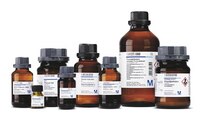110887 SupelcoDichloroisocyanuric acid sodium salt dihydrate
Synonyms: Bleaching solution, 1,3-Dichloro-1,3,5-triazine-2,4,6-trione sodium salt
Recommended Products
Overview
| Replacement Information |
|---|
Key Spec Table
| CAS # | EC Number | Hill Formula | Molar Mass |
|---|---|---|---|
| 51580-86-0 | 220-767-7 | C₃Cl₂N₃NaO₃ * 2 H₂O | 256 g/mol |
Products
| Catalogue Number | Packaging | Qty/Pack | |
|---|---|---|---|
| 1.10887.2500 | 2.5 kg |
| Description | |
|---|---|
| Catalogue Number | 110887 |
| Synonyms | Bleaching solution, 1,3-Dichloro-1,3,5-triazine-2,4,6-trione sodium salt |
| References |
|---|
| Product Information | |
|---|---|
| CAS number | 51580-86-0 |
| EC index number | 613-030-01-7 |
| EC number | 220-767-7 |
| Hill Formula | C₃Cl₂N₃NaO₃ * 2 H₂O |
| Molar Mass | 256 g/mol |
| HS Code | 2933 69 99 |
| Structure formula Image | |
| Quality Level | MQ100 |
| Applications |
|---|
| Biological Information |
|---|
| Dimensions |
|---|
| Materials Information |
|---|
| Toxicological Information | |
|---|---|
| LD 50 oral | LD50 Rat 550 - 1600 mg/kg |
| LD 50 dermal | LD50 Rabbit > 5000 mg/kg |
| Safety Information | |
|---|---|
| Categories of danger | harmful, irritant, dangerous for the environment |
| Product Usage Statements |
|---|
| Storage and Shipping Information | |
|---|---|
| Storage | Store at +15°C to +25°C. |
| Packaging Information |
|---|
| Supplemental Information |
|---|
| Specifications | |
|---|---|
| Assay (iodometric, calc. on dried substance) | ≥ 98.0 % |
| Identity (IR-spectrum) | conforms |
| Loss on Drying (105°C) | 9.0 - 16.0 % |
| Global Trade Item Number | |
|---|---|
| Catalogue Number | GTIN |
| 1.10887.2500 | 04022536128535 |
Documentation
Dichloroisocyanuric acid sodium salt dihydrate SDS
| Title |
|---|
Dichloroisocyanuric acid sodium salt dihydrate Certificates of Analysis
| Product Number | Packaging | Specification | Lot Number |
|---|---|---|---|
| 1.10887.2500 | PDF Specification Document |










